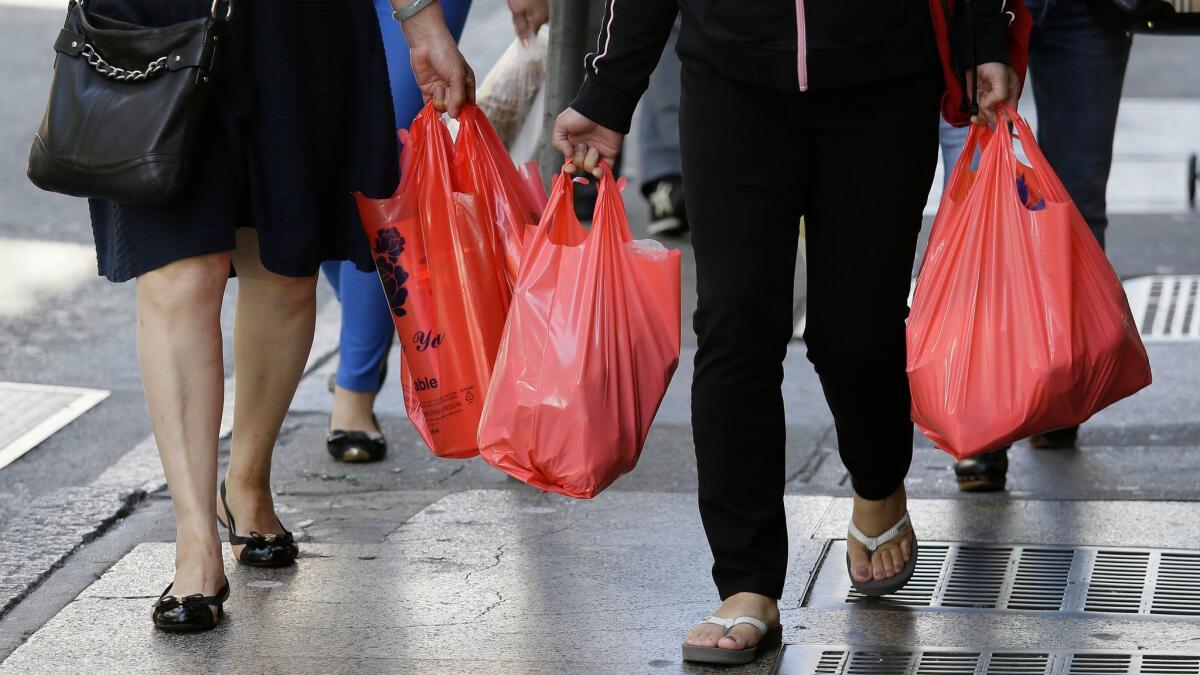Editorial: Stop banning plastic bag bans

Last year, California became the first state in the nation to ban single-use plastic bags when voters passed Proposition 67. Last week, Michigan became the seventh state in the nation to ban single-use plastic bag bans.
Sadly, it joins a clique of states with Republican-controlled legislatures that have taken the environmentally backward step of stamping out the spread of grassroots plastic bag bans by communities concerned about this destructive plastic menace.
Missouri, Idaho, Arizona, Wisconsin, Indiana and Florida are the other states that have adopted the preemption measures pushed by bag manufacturers, which are the main opponents of the local bans. Although such efforts are certainly not good for the environment in landlocked states, they’re particularly distressing in states adjacent to waterways, such as Florida and Michigan. Very few of the 100 billion single-use plastic bags used in the United States each year are recycled. And their lightweight nature and “T-shirt” design mean they are uniquely able to escape the trash can and wreak environmental damage. Single-use plastic bags are consistently among the top five forms of litter found in beach cleanups. Worse are the bags that remain in the ocean, where they break down into small bite-sized pellets that are harmful to sea creatures. There is a reason that California’s coastal cities pioneered the local prohibitions on single-use plastic bags that led eventually to a statewide ban.
Why would these seven states take a stand against localism to protect one small industry that may not even have factories there? It’s not about sound environmental policy. Instead, these are partisan political moves by state lawmakers to stop communities from enacting policies Republicans view as hostile to business. When the Missouri Legislature adopted its preemption in 2015, for example, it also banned cities from adopting living wage ordinances. Both are typically liberal policies that conservative politicians find objectionable.
Cities and counties, by contrast, are driven to adopt bag bans more by practical community concerns than ideology. The scourge of plastic bags is an issue for local governments, because that’s who has to deal with the cleanup costs. In California, the pre-ban yearly bill for taxpayers was about $428 million.
The intent of preemption laws is to halt the momentum of local bans before they grow into a statewide movement, as happened here. Californians saw through the industry’s flimsy arguments that bans are costly, unsanitary and ineffective (they’re not). Hopefully, the citizens in these seven preemption states — and any others that consider adopting similar laws — will see through the motives of their lawmakers and fight successfully for the right to decide whether to ban the bags in their own communities.
Follow the Opinion section on Twitter @latimesopinion and Facebook
More to Read
A cure for the common opinion
Get thought-provoking perspectives with our weekly newsletter.
You may occasionally receive promotional content from the Los Angeles Times.










